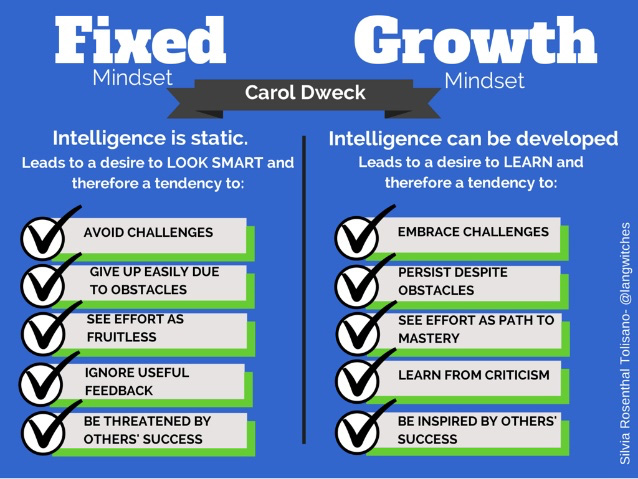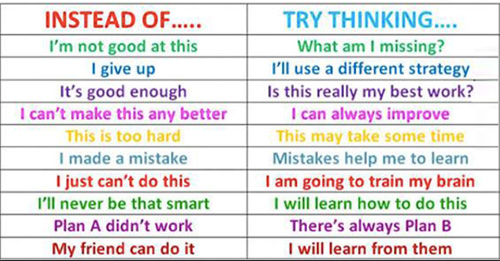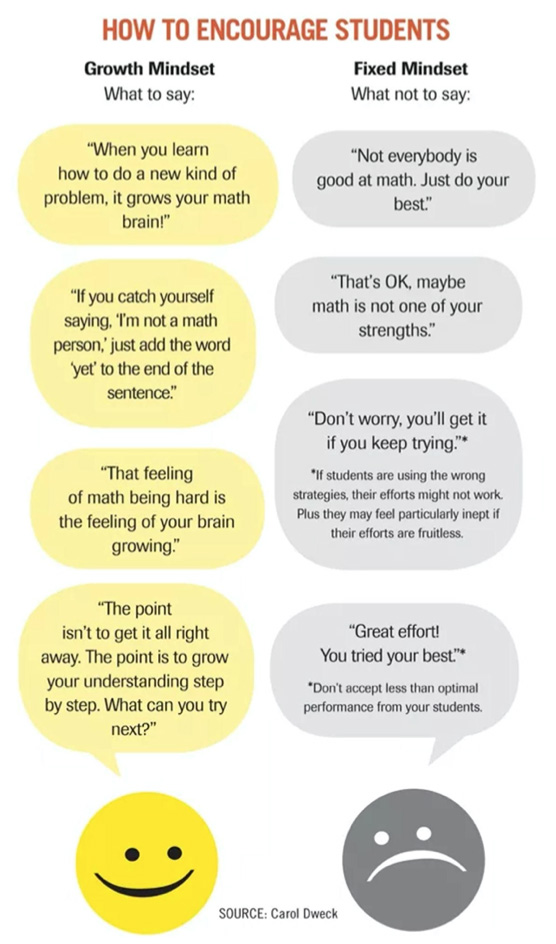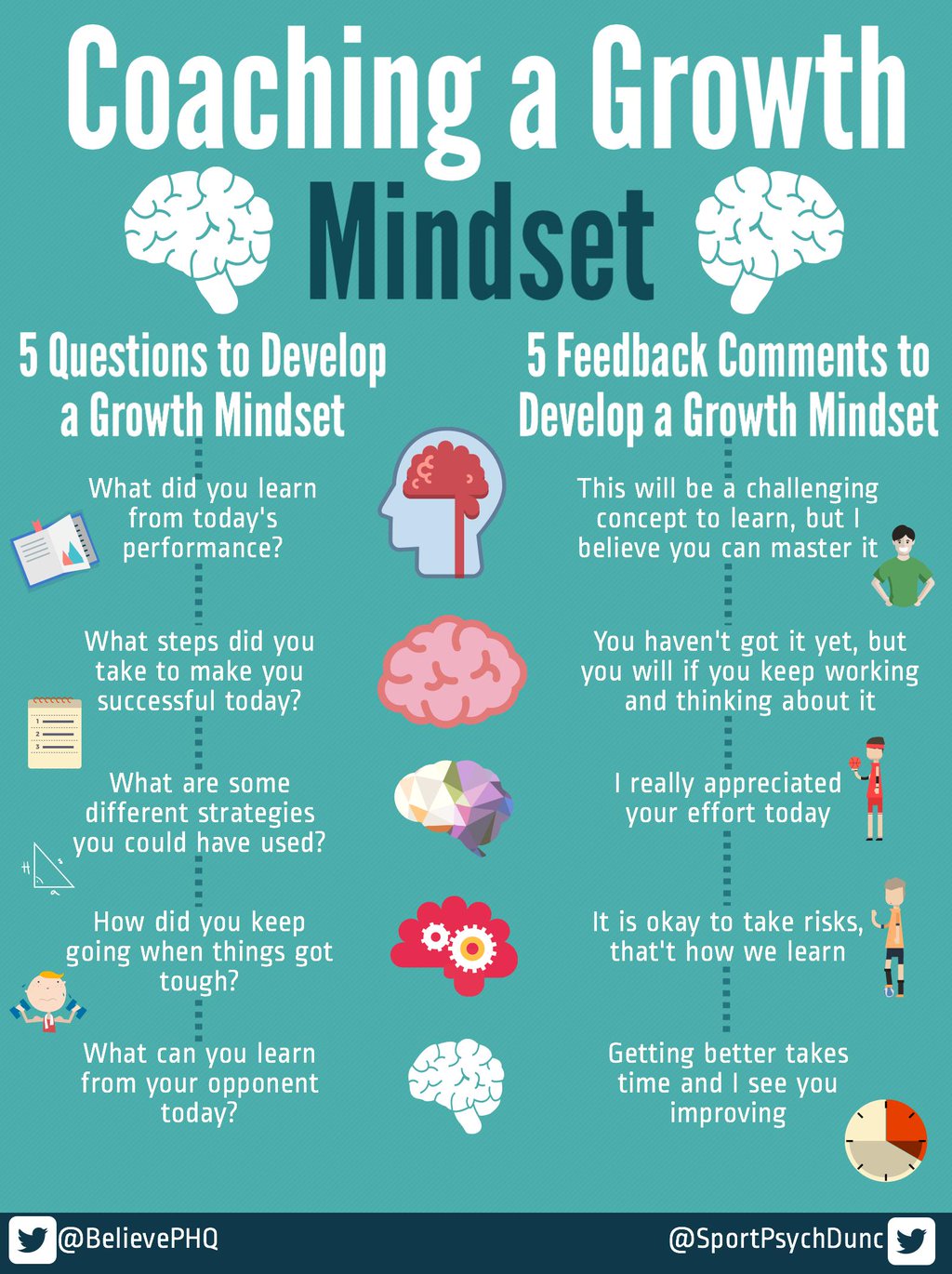Growth Mindset VS Fixed Mindset
Carol Dweck, author of Mindset: The New Psychology of Success, noticed that some students were able to easily bounce back after failure while other students were distraught over small mistakes. She set out to study students’ attitudes towards failure so she could understand why students respond so differently. Dr. Dweck created the terms growth and fixed mindset after spending years studying the behavior of thousands of students. In a Ted Talk, Carol Dweck stated that, “a growth mindset is when students understand that their abilities can be developed.” Students who believe the mind is malleable (growth mindset) are able to easily recover from failure because they see it as a learning opportunity.
Many scientists once believed that the brain’s ability to change and grow was only possible in early childhood. However, recent neuroscience research shows that our brains are much more malleable than we thought and the brain continues to change into old age. “The brain is constantly creating and destroying neural pathways, forming the thought and behavior patterns our brain uses to make decisions, choose actions and present us to the outside world. The pathways that are used get stronger; those that are under-used grow weak and eventually replaced,” according to Margie Meacham. This means that our brains are not static, they are like a muscle! Through repeated practice and exposure to new challenges, we can create pathways that make our brains stronger and smarter.
When you change your words, you change your mindset. When your child is faced with a challenge the image below shows how to help them turn a fixed mindset statement into a growth mindset statement!
There is a strong link between mindsets and achievement. Many educators, parents, and employers have adopted the mindset principles found in Carol Dweck’s book and have seen astounding results in their students, children, and employees. However, there are 3 common misconceptions about growth mindset that Carol Dweck wants everyone to be aware of before implementing it with their child or in the workforce.
- I already have it, and always have. Carol refers to this as a “false growth mindset” because a pure growth mindset does not exist. “Everyone is actually a mixture of fixed and growth mindsets, and that mixture continually evolves with experience,” states Dweck.
- A growth mindset is just about praising and rewarding effort. “Unproductive effort is never a good thing,” says Carol Dweck. Often times students are praised for showing effort, but not learning and this only makes students feel good in the moment. Therefore it is important to praise a student’s effort and the learning process they went through to achieve the desired outcome. Carol Dweck and her team found that when children focus on the learning process (trying new strategies, asking for help, viewing failure as an opportunity for growth) then they are better equipped to implement a growth mindset and its benefits.
- Just adopt a growth mindset and good things will happen. Someone may not reach their goal but it is important to reward them for the lessons learned during the process. Dr. Dweck wants educators that coach students to have a growth mindset to “encourage appropriate risk-taking, knowing that some risks won’t work out.”
The websites below are wonderful resources for educators or parents who want to teach their child about growth mindset. The first website shows how to explain what growth mindset is through pictures, activities, and printables. The second website explains growth mindset though animated video clips, discussions, and questions. Both resources are excellent ways to begin the process of instilling a growth mindset in your child!
Michelle Crossley
Related Articles That Might
Interest You

Neurodivergent Special Interest
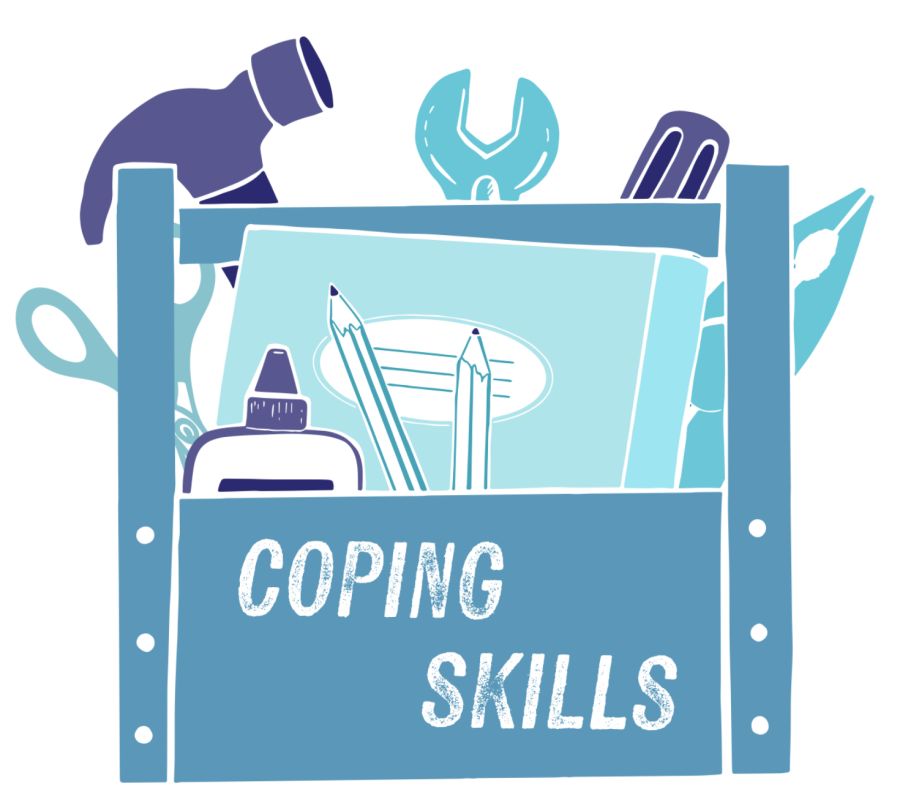
Coping Skill( CBT techniques and DBT techniques)

